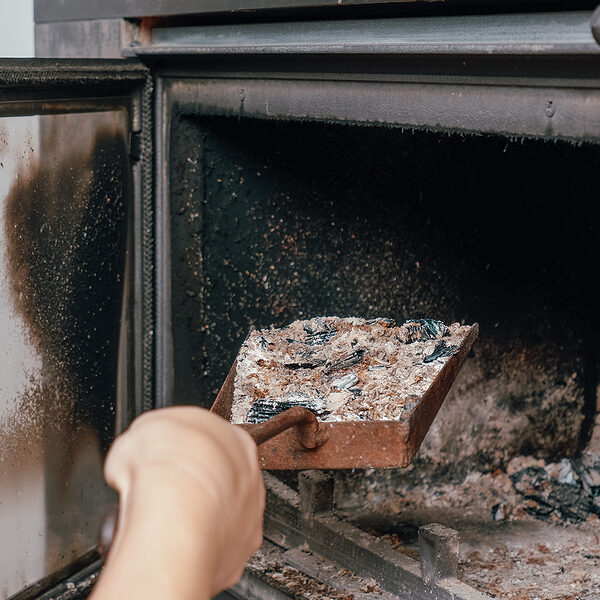Are Fireplace Ashes Safe for My Garden?
Using wood ash in the garden to add nutrients to the soil dates back centuries, and many gardeners today use wood ash. However, it’s not as simple as taking a bucket of fireplace ashes and dumping them in the garden. In this post our experts at National Chimney Cleaners, look at the benefits of using fireplace ashes, the dangers involved, and how to use them correctly.
 Benefits of Using Fireplace Ashes in Your Garden
Benefits of Using Fireplace Ashes in Your Garden
As mentioned, using fireplace ashes in the garden is a practice that goes way back and was common among the early American settlers to help fertilize their crops.
Historically, people used wood ash as a source of potassium, an essential nutrient for plant growth, and to help neutralize acidic soils. Potassium is a macronutrient that plants require for healthy growth and development, and wood ash contains significant amounts of this nutrient, as well as smaller amounts of other minerals like calcium, magnesium, and phosphorus. Depending on the wood you use in your fire, the ashes can raise the soil’s pH levels, making it better suited to grow certain plants. Different woods produce different ashes with different benefits. For example, oak and hickory ashes are high in calcium, while pine and fir are higher in potassium.
Dangers of Using Wood Ash in Your Garden
While using ashes from your fireplace is safe and healthy for your garden, it doesn’t come without risks.
Soil pH Alteration
Wood ash is alkaline and can raise the soil’s pH levels, making it less acidic. Some plants prefer slightly alkaline soils, but others won’t tolerate them, suffering from nutrient deficiency or toxicity.
Toxic Chemicals
Some ashes can contain heavy metals and other toxic chemicals like arsenic, lead, and mercury, which can accumulate in the soil over time, harming your plants and putting humans and livestock at risk.
Overuse
Moderation is key when using wood ashes in your garden because overuse can lead to nutrient imbalances in the soil. Yes, the ashes contain potassium and essential minerals beneficial for growing certain plants, but too much of a good thing can impair your plant’s growth or cause them to die.
How to Use Fireplace Ashes In Your Garden Safely
If you have a fireplace and a garden, there’s no good reason you shouldn’t give your plants a boost from the ashes, and here are some tips to do it safely and keep your plants healthy.
Test Your Soil
Before adding ashes from your fireplace to the soil, it’s crucial that you test it to know what the pH level is to ensure adding ashes won’t make it too alkaline. You can get an inexpensive test kit from your home and garden store or send the soil to a lab for analysis.
Use Ashes in Moderation
As stated, while ashes are good for the soil and the plants, you have to be careful not to overdo it. Experts recommend using no more than 20 pounds of wood ash per 1,000 square feet of garden space per year, which equals approximately five gallons of small buckets. This should provide the soil with enough potassium without raising the pH level. If you’re unsure, it’s best to err on the side of caution and use less, monitor the results, and gradually increase the amount.
 Don’t Rely on Ashes Alone
Don’t Rely on Ashes Alone
Wood ash is an excellent source of potassium, but your plants need other nutrients to grow healthy, like nitrogen and phosphorous. It’s best to use fireplace ashes and compost to give your plants a balanced nutrition.
Monitor the Plants
Lastly, keeping an eye on your plants after adding fireplace ashes to the soil is important. If you notice signs of nutrient deficiency or toxicity, such as yellowing leaves, stunted growth, or browning tips, reduce or stop using ashes and consult a gardening expert.
If you have more questions about using fireplace ashes in the garden or need a trusted chimney sweep in Somerset County, NJ, call the pros at National Chimney Cleaners at 888-655-4677.

 Benefits of Using Fireplace Ashes in Your Garden
Benefits of Using Fireplace Ashes in Your Garden Don’t Rely on Ashes Alone
Don’t Rely on Ashes Alone